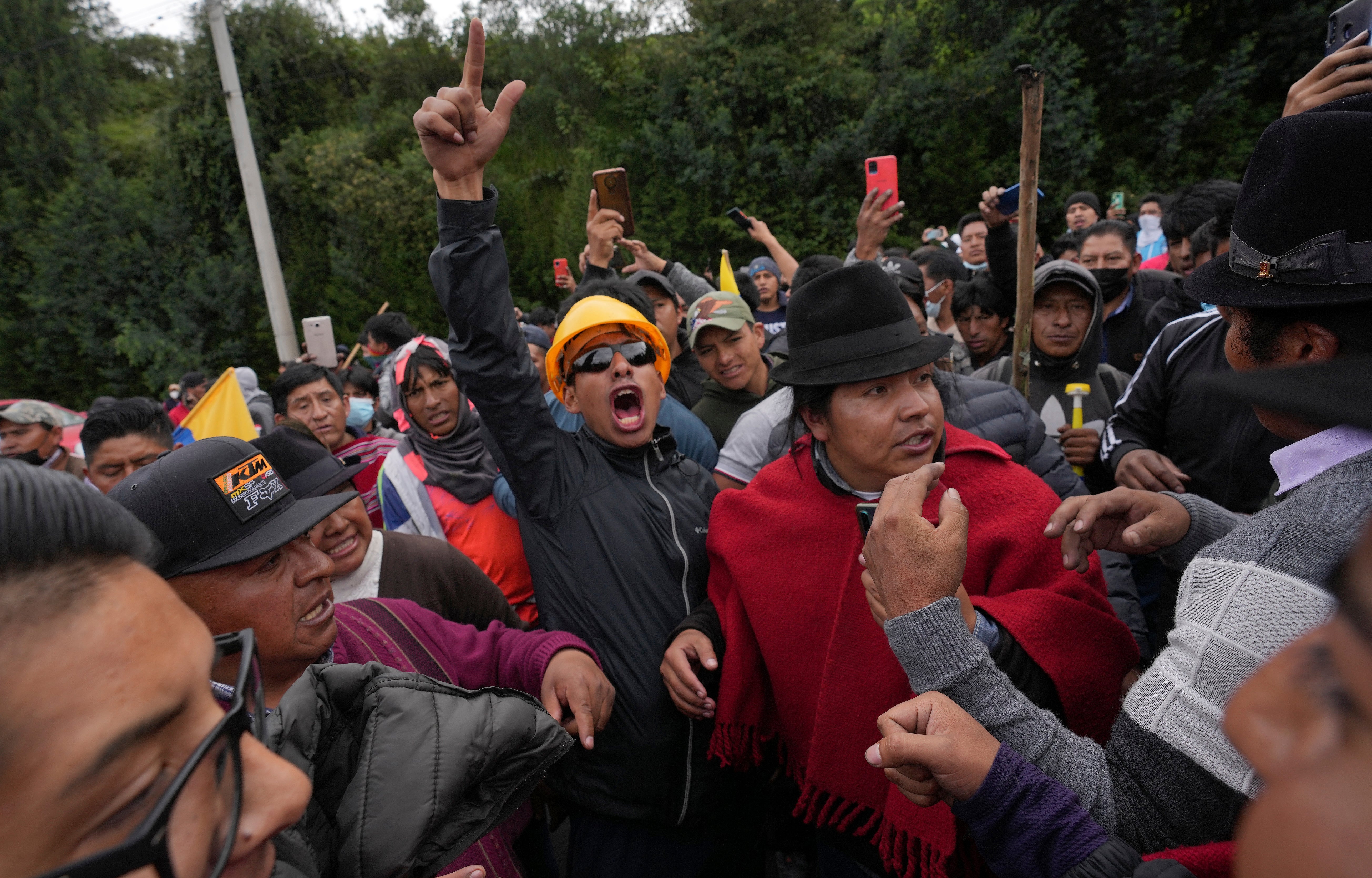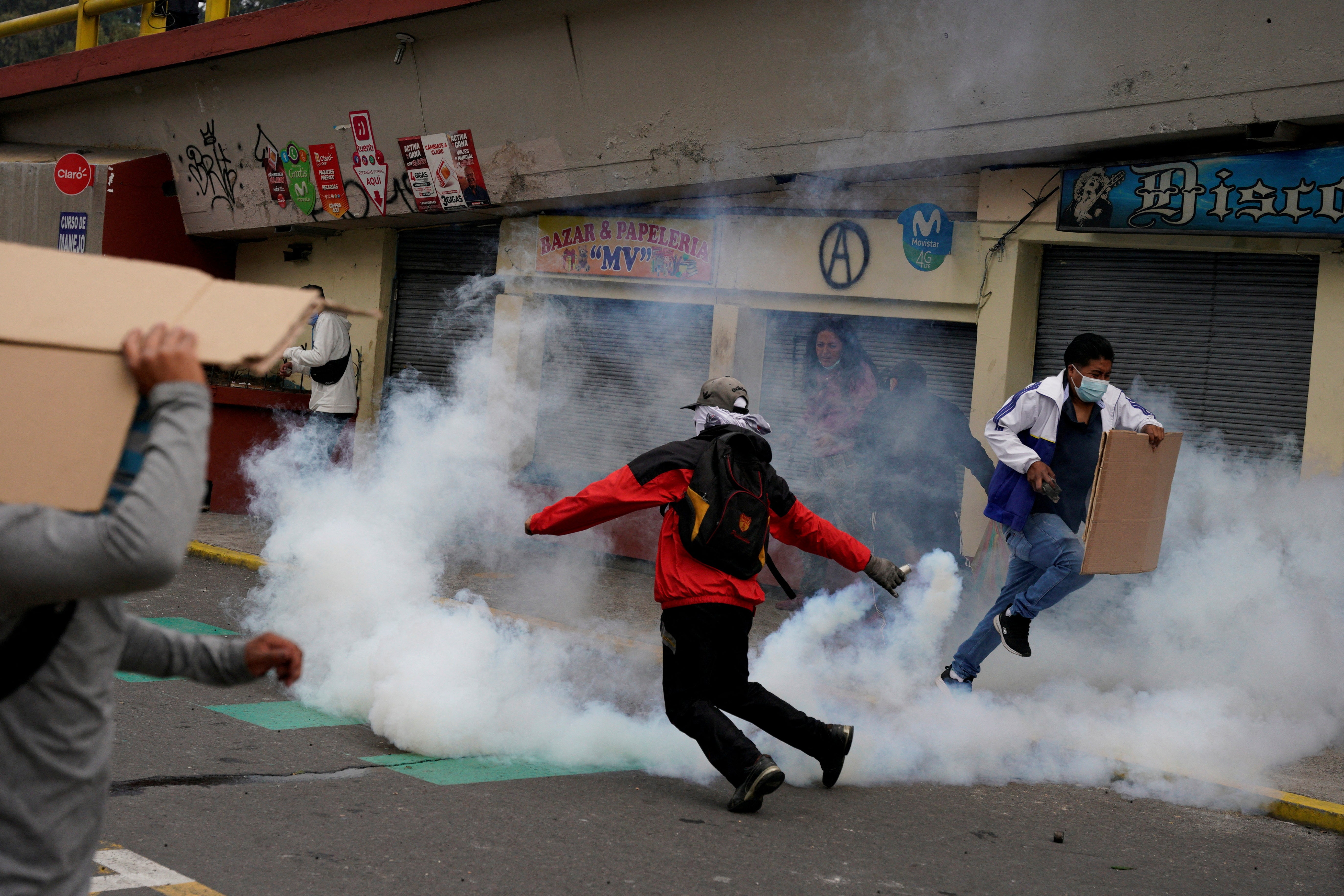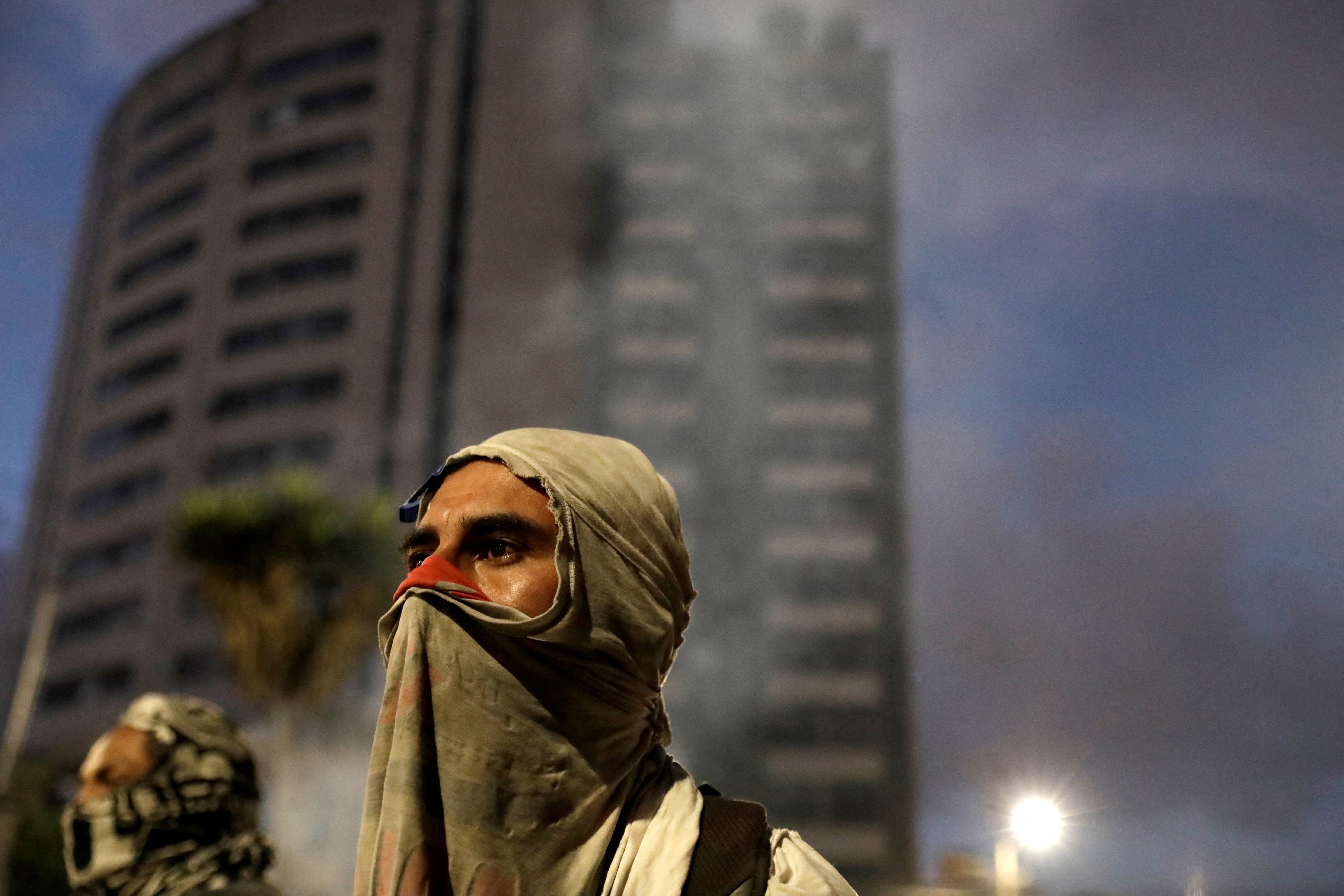Ecuador protests take increasingly violent turn in capital
Defence minister warns Ecuador’s democracy is at risk

Your support helps us to tell the story
From reproductive rights to climate change to Big Tech, The Independent is on the ground when the story is developing. Whether it's investigating the financials of Elon Musk's pro-Trump PAC or producing our latest documentary, 'The A Word', which shines a light on the American women fighting for reproductive rights, we know how important it is to parse out the facts from the messaging.
At such a critical moment in US history, we need reporters on the ground. Your donation allows us to keep sending journalists to speak to both sides of the story.
The Independent is trusted by Americans across the entire political spectrum. And unlike many other quality news outlets, we choose not to lock Americans out of our reporting and analysis with paywalls. We believe quality journalism should be available to everyone, paid for by those who can afford it.
Your support makes all the difference.Ecuador’s defence minister has warned the country’s democracy is at risk after Indigenous protesters attacked the prosecutor’s office and demonstrations against the government and rising fuel prices turned increasingly violent in Quito.
The capital has been virtually paralyzed amid increasing signs of food and fuel shortages and reports of clashes between Indigenous protesters and police. On Tuesday morning, protesters punctured the wheels of buses, forcing passengers to walk.
In a national broadcast, defence minister Luis Lara said the military was watching events with concern amid the “manipulation of social protests and the growth in violence by those who have rejected dialogue.”
Mr Lara said that “these actions go beyond a citizen protest - this amounts to a deliberate effort to use violence to threaten democracy, endanger institutions.”
The violence marked an escalation of protests that began eight days earlier, when the powerful Indigenous Nationalities Confederation called for an indefinite strike to press its demands that president Guillermo Lasso cut fuel prices, put price controls on agricultural products and increase the education budget, among other issues.
Images in local media showed damage to Ecuador's prosecutor’s office, which is next to a focal point for the protests, Salesiana University. Officials in the office requested help from the police and military and said they were moving files with sensitive information to a safe location to ensure investigations were not affected.

In similar Indigenous protests in October 2019, a group entered the government comptroller's office and set fire to the building and destroyed files.
The strike has largely affected six provinces in Ecuador’s north, but demonstrators have also intermittently blocked roads, leading to fuel and food shortages in numerous areas of the country, including the capital.
A group made up of Ecuador’s universities, the Catholic Church and delegations of the United Nations and the Organization of American States, among 300 other institutions, have called on the government and Indigenous groups to “reach agreements to deal with the serious economic, social and political crisis that Ecuador is going through.”
The government accepted the call, but the demonstrators have yet to respond.

The Energy Ministry has invoked contract clauses that prevent lawsuits from being filed by hydrocarbon operators over unfulfilled contracts as the protests affect output. Demonstrators have entered oil fields, forcing companies to shut down almost 609 wells in the Amazon, leading to a loss of around 30,000 barrels per day.
Also Tuesday, the prosecutor’s office said on Twitter it had launched an investigation into reports of the “alleged contamination of water sources that enter treatment plants” in the city of Ambato, which has a population of around 170,000.
Reports from the Andean city say water in at least seven sectors was coming out with a dark colour and with the smell of burned motor oil. Three years ago, sabotage by demonstrators cut off water supplies in Ambato, 131 kilometres (81 miles) south of the capital.